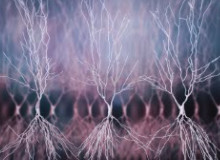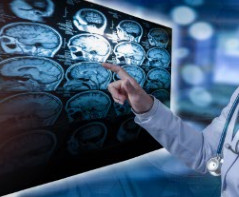Author: DynamicBrain Inc.
Publication: Monthly Newsletter
Published Date: May 21, 2024
On April 30th, researchers published the results from a randomized controlled trial that enrolled older adults with normal aging brains. After training for a total of 35 hours within 10 weeks, participants in the BrainHQ group, as compared to the control group, showed a significant improvement in several areas. This included the maintenance of the caudate volume (rather than the grey matter deterioration typically accompanied by adverse changes in neural activity and functional connectivity seen in increased Alzheimer’s risk) as well as maintenance in other areas that typically experience decline in white matter integrity with aging and increased cognitive risk. Learn more.
This study, by including the imaging measures, shows how brain training works by rewiring the brain and improving the health of the brain as a biological system while improving cognitive performance in daily life.
I do hope that the results from this strong study further motivate you to maintain a healthy brain and that, if you still don’t have full access to BrainHQ, you join now!

Kind regards, Frieda Fanni
President
DynamicBrain Inc.
DynamicBrain Inc. is the Canadian partner of Posit Science Corporation since 2010 providing brain fitness program BrainHQ in English and French.
|
 |
 Unlocking brain repair
Unlocking brain repair
Our brains house tiny energy factories that might hold the key to restoring brain function, according to new research. The spotlight falls on mitochondria—our cellular power houses—and their dynamic role in shaping new neurons. As new neurons develop, their mitochondria undergo a transformation that enhances synaptic plasticity—the brain’s ability to form and refine connections.
Read on to find out more.
 Regulating immune responses
Regulating immune responses
It’s crucial to maintain a balanced immune response system. Overly active inflammatory responses may trigger immune imbalances, potentially resulting in a range of conditions. Improving our understanding of how our bodies regulate immune responses can help us develop better strategies for treating immune disorders. In a recent study, researchers demonstrated how neural circuits are essential in regulating our immune system.
See what the results tell us.
 Sleep’s first half
Sleep’s first half
A widely held theory about why we sleep says that sleeping acts as a reset for our brains. A new study, which enlisted the help of zebrafish, supports this theory. Zebrafish have transparent skin, which means that scientists can observe what happens in their bodies while they sleep. What scientists found in this study was that, during the first half of sleep, the brain actively weakens the synaptic connections formed during wakefulness.
Learn how this suggests that sleep serves to prepare the brain for new learning.